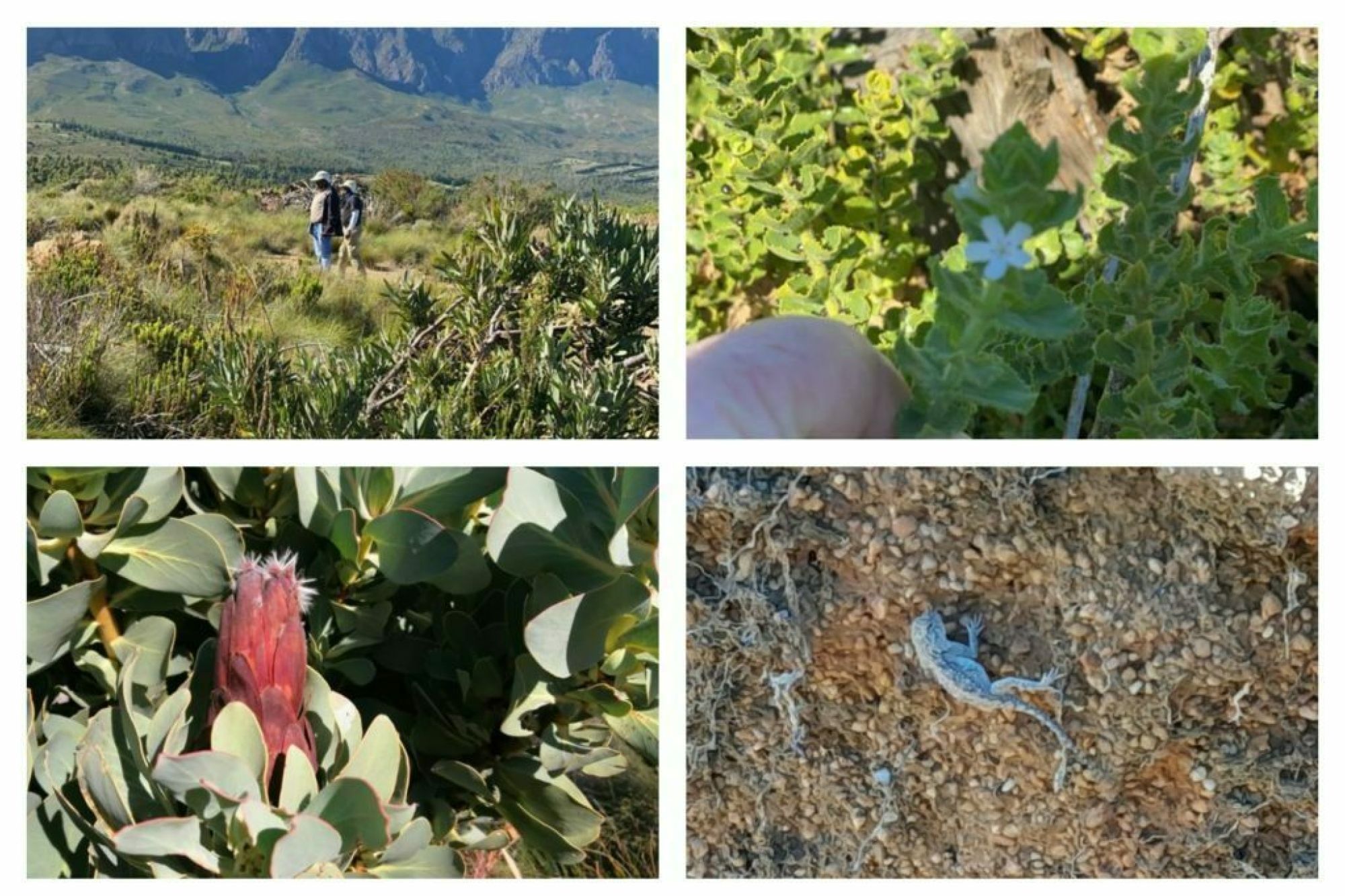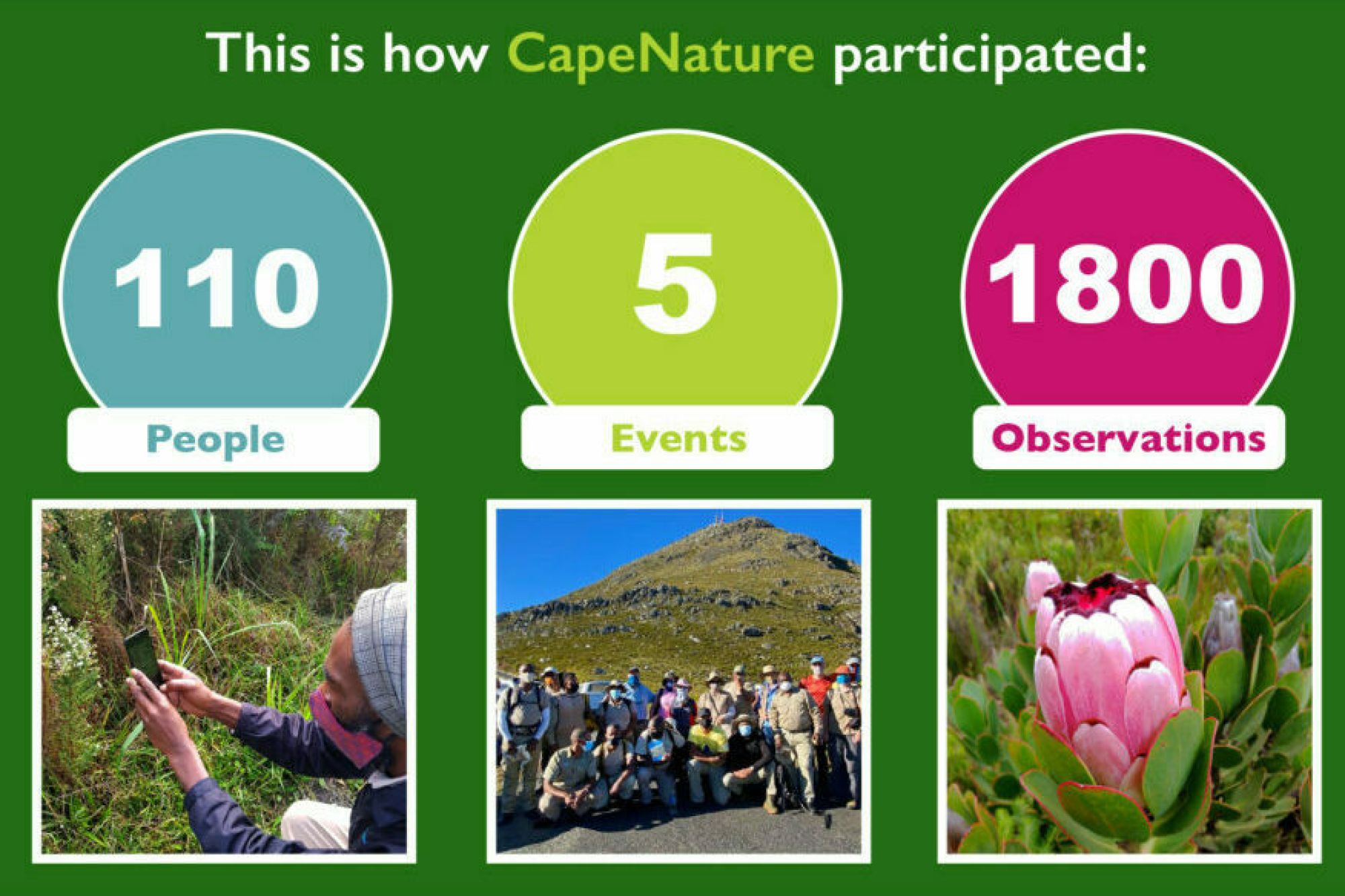
CapeNature participates in the City Nature Challenge, a worldwide citizen science event
By Natanya Dreyer, Team Leader, Learning and Awareness
The annual City Nature Challenge is a global community science competition to document biodiversity. The challenge is a bio blitz that engages residents and visitors to find and document plants, animals and other organisms within a specific boundary.

Cities around the world compete against one another to see who can make the most observations of nature, find the most species and engage the most people to participate. Knowing where and what species are in our cities help us to study and protect them. By garnering the support of the public and all major conservation organisations within a particular boundary, an incredible amount of data is able to be collected in a very short space of time.
Following a hard lockdown during the 2020 event, in 2021, South Africa and the Western Cape was finally able to fully discover and document its incredible wildlife in the great outdoors again. Both the City of Cape Town and the Garden Route Municipality entered the competition and CapeNature was there to help record species and arrange events for the public.

The event ran from 30 April to 3 May and in that time CapeNature events were held at the Lourensford and Hansekop sites in the Hottentots Holland Nature Reserve, Atlantis Area, Kammanassie and Gamkaberg Nature Reserves. 110 people attended these events with an estimated 1800 observations made. Participants included CapeNature staff, scientists and members of the public. Between 30 April and 9 May these observations will be uploaded and species names will be confirmed by specialists in the field. CapeNature’s contributions will be added to other participant organisations and individuals and the final result for the participating cities will be announced in the upcoming weeks.




